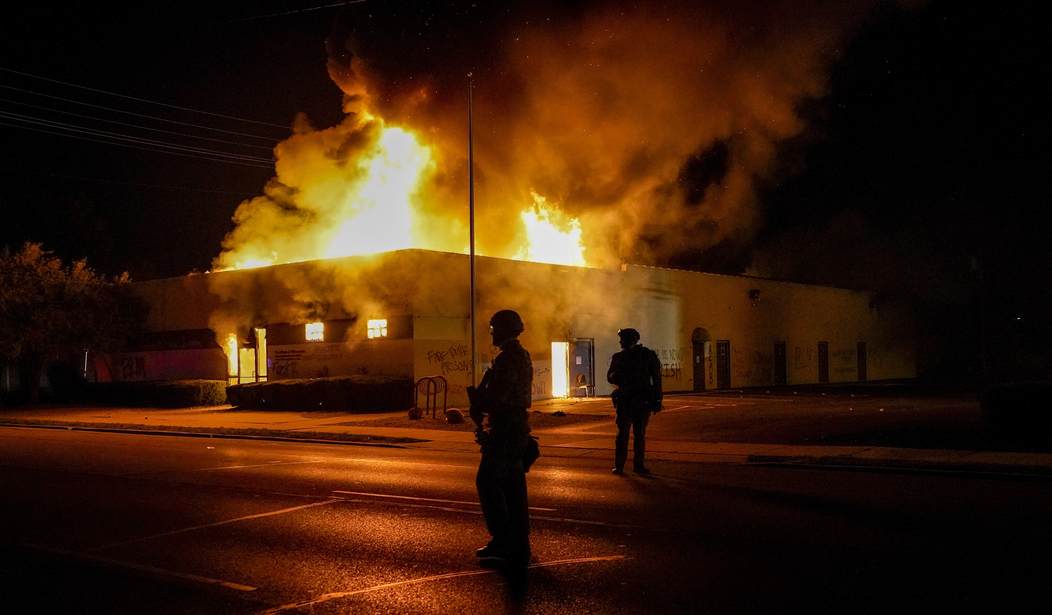This is a story about the exercise of raw power and the cowardice of those unwilling to stand up to the injustice of it.
Daniel Elder is a Nashville composer of choral music who had been making a name for himself in the music industry. His first commercial album had just been released and things were going well for the young musician.
Then came the death of George Floyd, and riots and protests rocked Nashville. Elder lived a couple of blocks from the courthouse and his neighborhood was victimized by rioters who smashed windows in the courthouse, spray-painted graffiti and set it afire.
Elder was upset by social media posts in his feed that justified radicalism and violence. Although a self-described man of the center-left, he couldn’t abide people justifying destruction.
Before deleting his Instagram account in disgust, he made one final post:
“Enjoy burning it all down, you well-intentioned, blind people. I’m done.”
The post was unambiguous: Elder was criticizing the activists who had set the courthouse on fire. He did not malign their cause or their ethnicity (and in fact, the perpetrator was white). He did not attack the Black Lives Matter movement or criminal justice reform. He implied that the militants had good motives (“well-intentioned”) but were oblivious (“blind”) when it came to the self-defeating nature of their tactics.
These sentiments are not racist; in fact, they are correct. Social science research and voter surveys show that violent and destructive protests tend to backfire, eroding support for the cause in question. While a small number of far-left agitators support these tactics, the overwhelming majority of people oppose looting, riots, and arson. That is especially true of those who live in communities of color.
When Elder woke up the next morning he was surprised to find his social media posts and email full of hate, invective, and accusations that he was a “racist” and “white supremacist.”
“I’ve relatively recently become aware of your work and have enjoyed your compositions for their sensitivity and artistry,” wrote one former fan. “However, after learning of your insensitive comments on social media, however perceived as misunderstood, I’ve decided to unsubscribe from your [YouTube] channel and will no longer recommend your compositions to colleagues.”
A music department head threatened to ban his music from the school unless he apologized.
“I am a choir director and department head for the music department for a private school in Ohio,” the department head declared. “I want to inform you that your rhetoric surrounding the recent protests is unacceptable and my school will not be programming your music unless and until a public apology is issued.”
Almost immediately after the tumult began, his publisher, GIA Publications, suggested he apologize. The bastards even wrote him an apology that they wanted him to post.
“There is no justification that I can offer for my post,” the publisher wrote for Elder. “So, rather than try to offer an excuse for what was done, I offer a promise for what I will do going forward. I commit to making amends and to dialogue. I commit to continue educating myself about privilege and bias. I commit to continue seeking an understanding of the experience of others, especially the Black community. I know that working for justice requires that we each first act justly. My work begins now.”
“I chose to be that guy who didn’t issue the apology,” he says. “Things went from there and it wasn’t good.”
It turned from simply nauseating to inexplicably bizarre.
Within hours, GIA issued a denunciation of Elder.
“The views expressed in composer Daniel Elder’s incendiary social media post on Sunday evening do not reflect the values of GIA or our employees,” it read. “GIA opposes racism in all its forms and is committed to do what Michelle Obama called ‘the honest, uncomfortable work of rooting it out.'”
What “incendiary” statement was that? Elder had the misfortune of giving people who spend all day looking±searching for something to be offended by or that they can play the race card on—a clear opening.
There are no clear boundaries that normal people can avoid and not transgress. But that’s the point, isn’t it? If everyone is worried about causing offense, the racial bullies win. They alone get to decide what is offensive and what is not. They alone decide what is racist and what isn’t.
That is an enormous amount of power in the hands of very few people. And as the Elder case shows, they regularly abuse it over trifles.
“Powerless,” indeed.










Join the conversation as a VIP Member